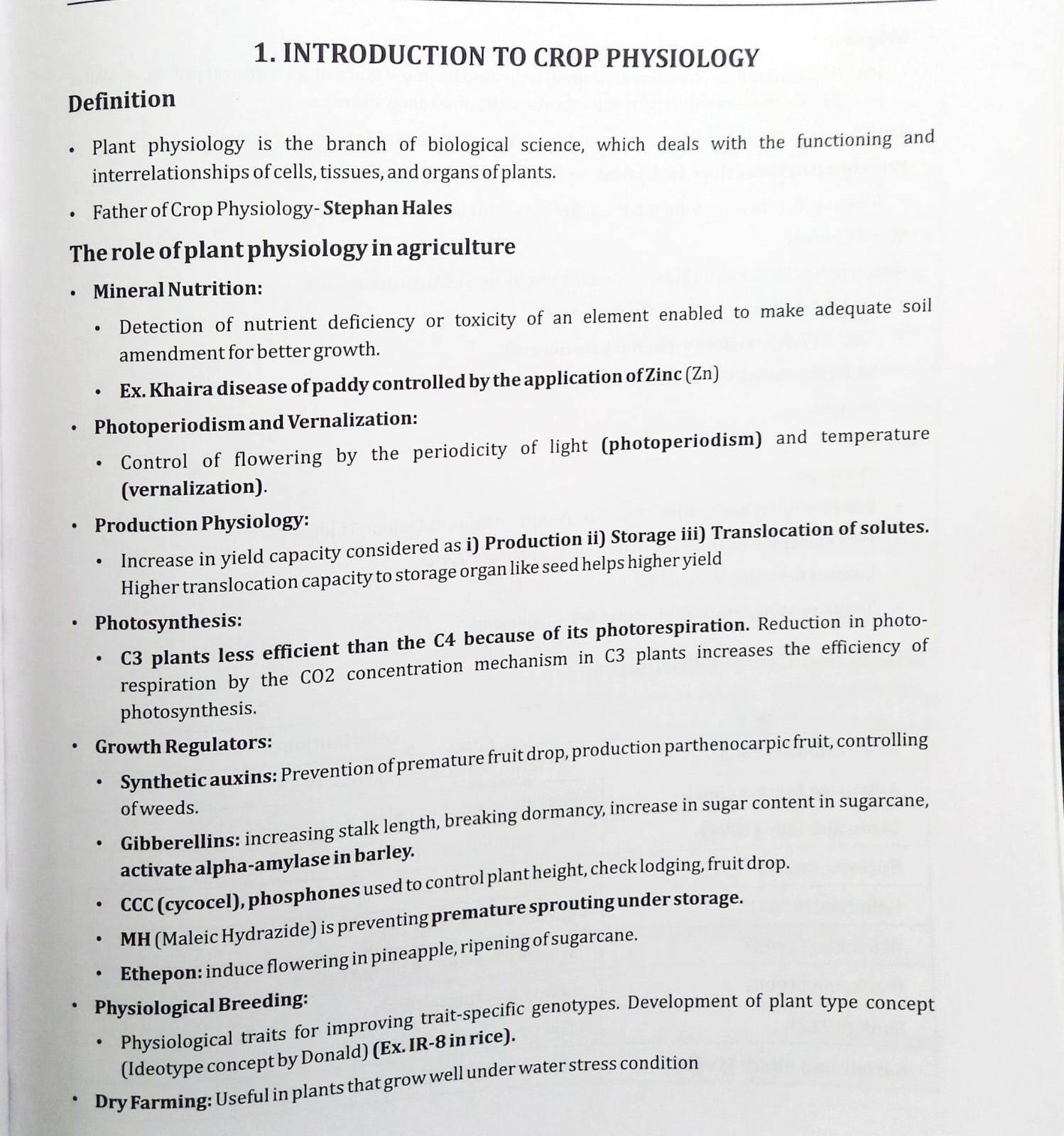What is the role of plant physiology in agriculture? Discuss aspects like mineral nutrition, photoperiodism, production physiology, photosynthesis, growth regulators, and breeding... What is the role of plant physiology in agriculture? Discuss aspects like mineral nutrition, photoperiodism, production physiology, photosynthesis, growth regulators, and breeding practices.

Understand the Problem
The text provides an introduction to crop physiology, covering definitions, roles of plant physiology in agriculture, and the physiological processes that contribute to crop production. It discusses mineral nutrition, photoperiodism, production physiology, photosynthesis, growth regulators, and breeding practices.
Answer
Plant physiology enhances mineral nutrition, photoperiodism, production, photosynthesis, growth regulators, and breeding in agriculture.
Plant physiology plays a crucial role in agriculture by improving mineral nutrition, managing photoperiodism, increasing production efficiency, enhancing photosynthesis, utilizing growth regulators, and aiding breeding practices for specific traits.
Answer for screen readers
Plant physiology plays a crucial role in agriculture by improving mineral nutrition, managing photoperiodism, increasing production efficiency, enhancing photosynthesis, utilizing growth regulators, and aiding breeding practices for specific traits.
More Information
Plant physiology helps optimize agricultural productivity by advancing our understanding of complex biological processes crucial for plant health and yield.
Tips
Avoid overlooking the interconnectedness of physiological processes and their cumulative impact on overall agricultural productivity.
Sources
- Unit 12 – Plant Physiology in Agriculture & Ecology - Fiveable - fiveable.me
- Agricultural Implications of Plant Physiology - Cambridge Core - core-prod.cambridgecore.org
- Plant Physiology and Crop Improvement - Biology Discussion - biologydiscussion.com
AI-generated content may contain errors. Please verify critical information